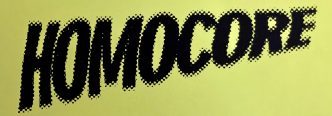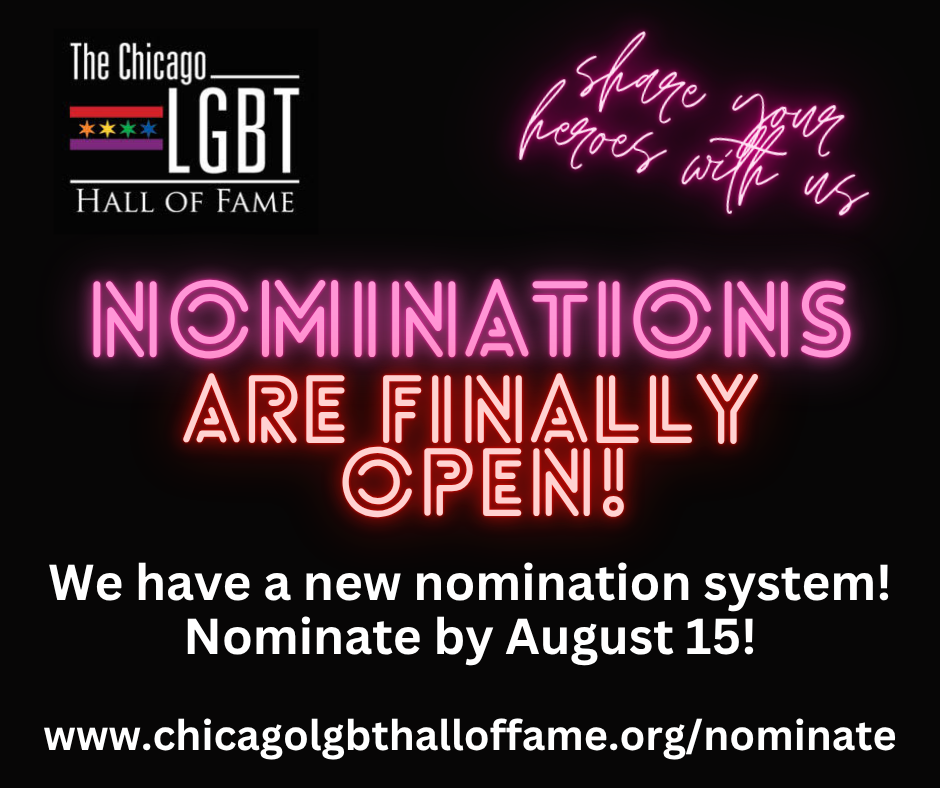Organization | Inducted 2022
Homocore Chicago was a concert promotion organization founded by Joanna Brown and Mark Freitas in 1992 with the goal of providing queer or all-girl punk bands a safe place to perform to a crowd of their peers without the fear of harassment. The first Homocore Chicago show was on November 13, 1992, and the series ran until May 20, 2000. The crowds increased from around 50 at the very first show to well over 500 at the final show.
Throughout the eight-year run, Homocore Chicago stayed true to its beliefs of providing a safe space for queers and women along with a philanthropic spirit. Homocore Chicago put on numerous benefits, just some of them being for: Chicago Women and Aids Project, Needle Exchange, Food Not Bombs, Teen Living (now Ignite), and many other shows benefiting queer and HIV-related organizations. As well, any other supportive services of interest were welcome to table at their events. The final show was a benefit for the feminist film group, Women in the Director’s Chair, Homocore Chicago also gave all profits above costs to the bands performing.
Homocore was one of the first to encourage a mixed-gender crowd no matter the gender of the band members performing. Homocore Chicago was also one of the first to present all-ages events, ensuring that LGBT youth had a safe space to gather and were able to enjoy queer punk-oriented performances in a safe and welcoming environment.
From the beginning, Homocore Chicago was recognized in the straight and gay press as a much-needed concept. Throughout the years, Homocore Chicago was profiled in numerous magazines and newspapers, including feature stories in Rolling Stone and the New York Times. A June 19, 2019 Chicago Reader cover story entitled “How Homocore Chicago Kicked Open the Gates for Queer Punks” went into detail about how the legacy of Homocore Chicago enabled the future of queercore in the city. Homocore Chicago had dedicated chapters in the books “DIY-The Rise of LO-FI” and a chapter and numerous mentions in the recent oral history “Queercore-How to Punk a Revolution”. Homocore Chicago was also a featured part of Gerber Hart Archives’ recent display on queer 90’s activism.
Homocore Chicago laid the foundation for Chicago’s queercore community. Still being acknowledged as a pioneer, Homocore Chicago made the city the physical home of a movement recognized internationally as changing the face of LGBT and what it could mean.

